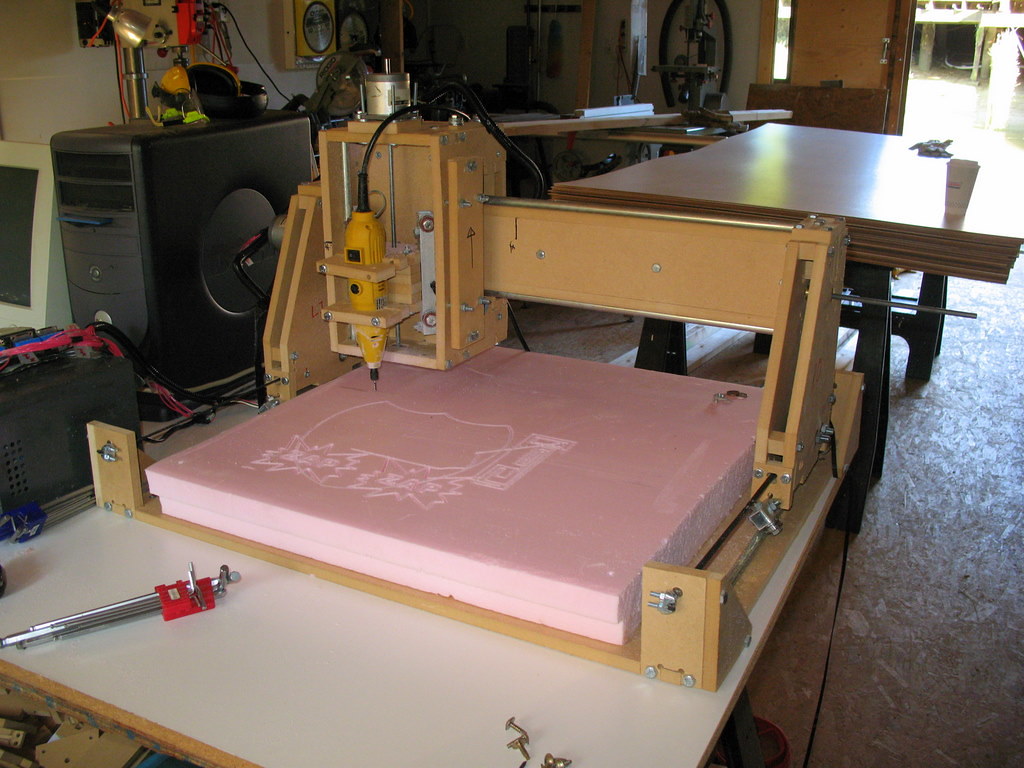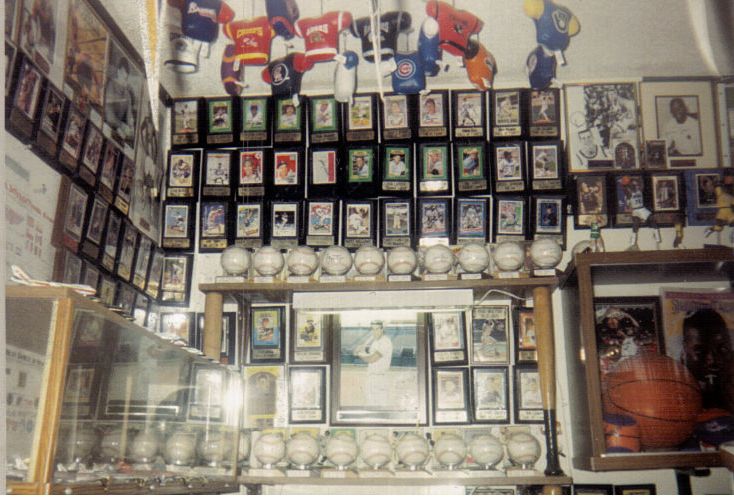
Alright, millennials, gather ’round! We’ve all been there, right? Scrolling through TikTok, sharing the latest ‘Ok Boomer’ meme, and generally feeling like there’s a massive canyon between our lived experiences and those of our parents’ generation. It’s easy to dismiss everything from their era as ‘outdated’ or ‘irrelevant’ in our fast-paced, ever-evolving world.
Generational tensions have, let’s be real, dominated cultural conversations for decades. We’ve certainly had our share of criticisms for baby boomers – hello, ‘outdated perspectives’ and ‘resistance to change,’ much? But here’s the kicker, folks: as we millennials mature and start navigating the delightful chaos of real-world challenges, a surprising truth is emerging. Turns out, some of that ‘boomer wisdom’ we once scoffed at? It actually holds some seriously valuable truths.
So, prepare for a mind-bending journey, because we’re about to dive deep into some classic boomer insights that are proving to be 100% right. These aren’t just old-school ideas; they’re foundational principles that, whether we like to admit it or not, are helping us navigate adulthood, finances, and well-being. Get ready to rethink everything you thought you knew about ‘Ok Boomer’!

1. **Quality Over Quantity Makes Financial Sense**
Remember how boomers always preached about investing in things that last? It felt a little old-fashioned, didn’t it, in a world where new gadgets and trendy clothes are always just a click away? But turns out, there’s some serious financial genius behind that philosophy. Boomers consciously invested in well-made items, from appliances to furniture, designed to last for years, rather than succumbing to the temptation of cheap, easily replaceable alternatives.
This isn’t just about avoiding clutter; it’s a brilliant long-term financial strategy. This approach genuinely saves money over time because you’re not constantly forking out cash for replacements. Plus, let’s not forget the environmental bonus: it significantly reduces waste. Millennials, now we get it – purchasing one quality appliance beats the endless cycle of replacing inferior products multiple times, frustrating.

2. **Credit Score Impacts Life Opportunities**
Oh, the classic eye-roll moment from our younger selves when our elders started talking about the mystical power of a good credit score. It felt like some abstract concept from a bygone era, totally disconnected from our immediate needs. Fast forward to the present, and with millennials having an average credit score of 690, we’re waking up to the undeniable reality of its importance.
Suddenly, applying for mortgages, car loans, or even just trying to rent an apartment reveals the undeniable truth: your credit score isn’t just a number; it fundamentally affects your financial opportunities. A stellar credit score acts like a master key, opening doors to better rates and easier approvals, while a poor score can create expensive barriers, making major life goals seem impossibly out of reach. Boomers were definitely onto something here.

3. **Emergency Funds Prevent Financial Disasters**
Setting aside money for unexpected expenses was a core boomer priority, a financial bedrock they lived by. For many millennials, especially those of us burdened by student debt or navigating a gig economy, the idea of having substantial emergency savings initially seemed like a luxury, something to dismiss as unnecessary until ‘later.’ This mindset has unfortunately led to a staggering statistic: 37% of millennials don’t have any emergency savings at all.
The hard truth hits when life throws a curveball. Job losses, unexpected medical bills, or suddenly needing a major car repair can devastate finances in an instant without a safety net. The pandemic, in particular, served as a stark, unforgettable lesson for the younger generation, unequivocally demonstrating that financial cushions are not just a nice-to-have but provide absolutely essential security during uncertain and challenging times. Boomers truly nailed this one.

4. **Taking Health Seriously Prevents Future Problems**
Preventive healthcare and healthy lifestyle choices – these were boomer priorities that, for a long time, the younger generation often chose to ignore. The lure of quick fixes and the feeling of invincible youth meant that concepts like ‘early attention to diet, exercise, and medical care‘ sounded like nagging from the past. Yet, as our bodies (and our doctor’s bills) start to tell a different story, the wisdom of this approach becomes crystal clear.
Establishing healthy habits in our youth isn’t just about feeling good in the moment; it’s about building strong foundations for lifelong wellness. This proactive approach significantly reduces the likelihood of developing serious health problems later in life, which in turn leads to vastly reduced medical costs. Turns out, those long walks and balanced meals weren’t just for fun – they were an investment in a healthier, wealthier future. Thanks, Boomers, for the heads-up!

5. **Retirement Planning Requires Early Action**
Starting retirement savings early seemed like a concept from a distant galaxy for many debt-burdened millennials. When you’re trying to figure out how to pay rent and buy groceries, thinking about what you’ll do at 65 feels, well, a little abstract. It’s a sobering thought that only 36% of Americans feel their retirement is actually on track, a stark contrast to the boomer generation’s earlier focus on long-term financial security.
But here’s the magic secret that boomers understood: compound interest is your best friend, and it works its wonders most effectively over decades. Early contributions, even small ones, snowball into incredibly valuable nest eggs. With the looming uncertainty around Social Security and the near disappearance of traditional pensions, personal retirement planning isn’t just a good idea; it’s become an absolutely essential strategy for financial security, a truth we’re rapidly embracing.

6. **DIY Skills Provide Independence and Savings**
Growing up in what often felt like a disposable culture, many millennials were quick to replace rather than repair. Why bother fixing something when a new, shinier version is so easily available? Boomers, on the other hand, were masters of repair, from fixing a leaky faucet to mending clothing, embodying a resourceful spirit that now feels incredibly valuable. Their mantra was simple: if it’s broken, fix it.
Today, as budgets tighten and sustainability becomes more important, millennials are rediscovering the undeniable power of basic repair skills. Learning to fix things not only extends the lifespan of products, saving significant money on professional services, but it also builds an incredible sense of confidence and self-sufficiency. This hands-on competence is a game-changer, proving that a little elbow grease can go a long, long way.

7. **Home Cooking Saves Substantial Money**
In the era of endless delivery apps and instant gratification, preparing meals at home often felt like an unnecessary chore. Why spend time in the kitchen when delicious food could be brought right to your door with minimal effort? Convenience was king, and our wallets often paid the price for it. However, with rising food costs – expected to increase by 1.9% in 2025 alone – and increasingly tight budgets, the financial reality has truly set in for millennials.
Cooking at home, it turns out, saves hundreds of dollars monthly. This isn’t just about cutting costs; it’s a holistic benefit. Learning basic cooking skills also actively promotes healthier eating habits, as you have full control over ingredients and portion sizes. Plus, there’s the undeniable bonus of family bonding time created around the dinner table. Boomers were definitely onto something wholesome and smart with their home-cooked meals.
Okay, deep breaths, fellow millennials. If you thought the first seven insights were a wake-up call, buckle up, because we’re just getting started! It turns out that some of those seemingly old-school boomer approaches to life, the ones we might have chuckled at behind our smartphones, are actually gold mines of wisdom for navigating our increasingly complex, digitally-driven world.
From how we connect with each other to the simple, yet profound, act of being on time, these next seven truths are all about fostering stronger relationships, enhancing our personal well-being, and understanding the sheer power of sustained effort. Get ready to nod along, maybe even sigh a little at how right they’ve been all along, and definitely get ready to integrate some of this timeless advice into your own fabulous lives.

8. **Face-to-Face Communication Builds Stronger Relationships**
In a world where our thumbs do more talking than our mouths, it’s easy to forget the power of a good old-fashioned in-person chat. Digital communication has definitely dominated our millennial interactions – hello, endless texts, DMs, and emojis! But guess what? Boomers, with their penchant for actual human voices and eye contact, were onto something huge.
When you’re dealing with important discussions, whether it’s hashing out a work project or navigating a tricky personal situation, there’s just no substitute for face-to-face interaction. The context tells us that “important discussions work better face-to-face, where tone, body language, and emotion convey full meaning.” It’s all about picking up on those non-verbal cues, the subtle shifts in expression, the genuine warmth (or lack thereof) in someone’s voice. These elements are simply lost in a quick text or even a voice note.
Ultimately, direct human interactions are the secret sauce for strengthening both workplace relationships and personal connections. It’s a bit like trying to bake a cake with just a recipe and no oven – you’re missing a crucial, foundational element. So, next time you’re about to send that long email, consider picking up the phone, or better yet, grabbing a coffee. Your relationships (and maybe your mental health) will thank you.

9. **Physical Books Offer Unique Benefits**
Alright, confession time: how many of us have a towering digital library but haven’t actually *read* a full e-book in ages? It’s true, millennials embraced digital reading with open arms, while boomers often stuck to their beloved paperbacks and hardcovers. And while digital convenience is undeniable, it turns out there are some seriously compelling reasons to go old-school.
The data confirms what many of us intuitively feel: “Reading printed books improves comprehension and memory retention by six to eight times.” Yes, you read that right! There’s something about the tactile experience of turning pages, the smell of paper, and the lack of distracting notifications that truly allows our brains to absorb and retain information more effectively. It’s like your brain can actually *feel* the knowledge sinking in.
Beyond the mental workout, physical books are also a fantastic way to “provide screen breaks and reduce digital eye strain during leisure time.” We spend so much of our lives glued to screens for work, socializing, and entertainment. Giving your eyes a much-needed break from blue light while still engaging in a stimulating activity? That’s a boomer win we can all get behind. Plus, a beautifully displayed bookshelf just screams “cultured and cool,” doesn’t it?
10. **Punctuality Shows Respect and Professionalism**
Raise your hand if “running on millennial time” has ever been your unofficial mantra. It’s cool, we’ve all been there. For a while, the boomer virtue of being strictly “on time” sometimes felt, well, a little uptight or even “outdated.” But as we navigate the professional world and build our adult lives, the undeniable truth is that punctuality isn’t just a quaint habit; it’s a cornerstone of success.
Professional success, whether you’re acing a job interview, leading a team meeting, or just hitting project deadlines, absolutely “requires punctuality in meetings, interviews, and deadlines.” It’s not just about getting there on the dot; it’s a clear, non-verbal signal. When you arrive on time, you’re not just showing up; you’re actively “showing respect for others and build[ing] a trustworthy personal reputation.” It tells your colleagues and clients that you value their time as much as your own, that you’re reliable, and that you mean business.
Think about it: who would you rather work with? Someone who consistently rolls in late, or someone who’s always prepared and ready to go? The answer is pretty clear. So, set that alarm five minutes earlier, factor in traffic, and embrace the power of being on time. It’s a small change that can make a monumental difference in how you’re perceived, and ultimately, in your career trajectory. Boomers nailed this simple but powerful life hack.

11. **Good Manners Open Professional and Social Doors**
Okay, be honest: how many times have you typed “thx” instead of “thank you,” or “np” instead of “no problem”? In our casual digital landscape, basic etiquette like “saying please and thank you” might have seemed “old-fashioned” to our more relaxed generations. But here’s the tea: those seemingly simple acts of politeness are still incredibly powerful tools in both professional and social settings.
Our context tells us plainly that “professional environments still value politeness, respect, and proper communication.” Whether you’re networking at an industry event, interacting with a potential employer, or simply collaborating with colleagues, demonstrating good manners shows you’re polished, considerate, and capable of navigating social dynamics. These “social skills create positive impressions and build valuable personal and business relationships.” It’s about making people feel comfortable and valued, which in turn, makes them more inclined to help you, hire you, or simply enjoy your company.
From a firm handshake and eye contact to listening actively and using respectful language, these are not just archaic rules from your grandma’s finishing school; they are fundamental building blocks for success. They set you apart in a crowded world and signal that you’re someone who can be trusted and relied upon. So, brush up on those manners; they’re the ultimate social currency.

12. **Living Within Your Means Reduces Stress**
Ah, the siren song of “buy now, pay later!” In a culture saturated with instant gratification and easy credit, it’s all too tempting to finance lifestyle purchases “beyond our budgets.” For many millennials, credit card culture encouraged us to acquire things we *wanted* rather than just what we could truly *afford*. Boomers, on the other hand, largely subscribed to a simpler, more stoic philosophy: “spent only what they could afford while avoiding unnecessary debt.”
And guess what? That boomer wisdom about financial discipline is a total game-changer for our mental well-being. Living within financial means prevents debt stress and allows for future planning and security.” The anxiety of mounting credit card bills, the weight of student loans, the constant pressure of keeping up with the Joneses – it’s a heavy burden that can impact every aspect of your life. Imagine the freedom that comes with not constantly worrying about money!
Embracing this principle means making conscious choices about your spending, prioritizing needs over wants, and building a budget that works for you. It might not always be glamorous, but the payoff in terms of reduced stress and increased financial security is absolutely priceless. This isn’t just about saving money; it’s about cultivating a mindset that empowers you to build a stable and peaceful future.

13. **Hard Work and Persistence Create Success**
Let’s be real, the job market has undergone some seismic shifts since the boomer generation reached its career peaks. The idea of a “job for life” seems like a mythical tale from a bygone era for many of us. But here’s a truth that transcends generations, regardless of economic shifts or technological advancements: “dedication remains valuable.”
The context is clear: “Career advancement still requires consistent effort, patience, and professional commitment.” It’s easy to get caught up in the allure of viral success stories, overnight millionaires, or the idea that you can just “manifest” your dream job. But the foundational principle that boomers understood so well is that genuine, lasting success is almost always built brick by painstaking brick. It involves showing up day after day, pushing through challenges, and continually refining your skills.
While “opportunities differ across generations,” the core truth remains: “persistent hard work continues producing positive results.” It’s about resilience, about learning from setbacks, and about staying committed to your goals even when the path gets tough. So, yes, the world has changed, but the power of grit and determination? That’s a boomer legacy we should all embrace.

14. **Handwritten Notes Show Thoughtfulness**
In an age of instant messages and fleeting digital communication, a handwritten note feels like a rare, precious artifact. For boomers, “personal touches like handwritten cards showed effort and consideration in communication.” For us, a quick text or email often suffices. But here’s the thing: while efficient, “digital messages lack the emotional impact of handwritten notes.”
Think about it: when was the last time a text message made you feel truly special or deeply appreciated? A handwritten note, however, is a tangible representation of time, effort, and genuine care. Taking time to write personal messages creates lasting impressions and strengthens relationships.” It shows the recipient that they were important enough for you to pause your busy life, sit down, and craft a message specifically for them, with your own hand.
Whether it’s a thank-you note after an interview, a birthday card to a friend, or a condolence message, the authenticity and warmth conveyed by a handwritten note are unparalleled. It’s a simple act that speaks volumes, and it’s a boomer tradition that absolutely deserves a comeback in our hyper-digital world. Go ahead, grab a pen and some stationery – you might just make someone’s day (and leave a memorable impression).
So, there you have it, folks. Fourteen undeniable truths that prove the boomers, despite our playful jabs and generational eye-rolls, really did get a lot right. From mastering finances to cherishing real-world connections and understanding the sheer power of effort, their wisdom isn’t just antiquated advice; it’s a treasure trove of practical, timeless strategies for building a fulfilling and resilient life. It’s not about being ‘Ok, Boomer’ versus ‘Hey, Millennial’; it’s about acknowledging that every generation brings valuable perspectives to the table. Let’s learn from each other, bridge those perceived divides, and perhaps, just perhaps, make the world a little bit better, one borrowed boomer insight at a time. Who knew? Maybe our parents *did* know a thing or two after all.




